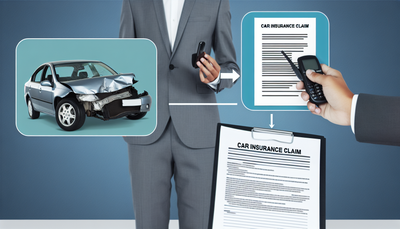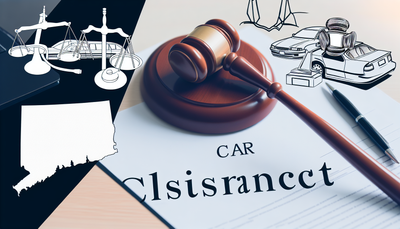Car Insurance Claims and Deductibles: What You Need to Know

Car Insurance Claims and Deductibles: What You Need to Know
Car insurance can be complicated, especially when it comes to claims and deductibles. Understanding how these aspects work is essential to ensure you're well-prepared in case of an accident. This guide will explain key concepts related to car insurance claims and deductibles, helping you make informed decisions.
What is a Car Insurance Deductible?
A deductible is the amount you agree to pay out of pocket before your insurance provider covers the remaining cost of a claim. Deductibles typically apply to collision and comprehensive coverage, but not liability insurance.
For example, if you have a $500 deductible and the repair costs after an accident total $2,000, you'll pay $500 while your insurer covers the remaining $1,500.
Choosing the Right Deductible
Selecting an appropriate deductible depends on your financial situation and risk tolerance. Here’s what to consider:
- Higher Deductible: Leads to lower premium costs but requires you to pay more out of pocket in the event of a claim.
- Lower Deductible: Results in higher premiums but reduces your immediate expenses when filing a claim.
Understanding the Car Insurance Claim Process
Filing a car insurance claim can feel overwhelming, but knowing the steps in advance will help you navigate it smoothly.
Steps to File a Claim:
- Assess the Situation: After an accident or damage, ensure everyone's safety and document the incident.
- Notify Your Insurer: Report the accident to your insurance company as soon as possible.
- Provide Necessary Information: Submit details like photos, witness statements, and a police report (if applicable).
- Work with an Adjuster: The insurance adjuster will assess the damages and determine the claim’s validity.
- Receive Payment or Repairs: Once approved, you’ll either receive a payout or have repairs covered based on your policy terms.
Factors That Affect Your Claim
Several factors influence how a claim is processed and the amount you receive:
- Policy Coverage: Check if your policy includes protection for specific incidents (e.g., theft, vandalism, natural disasters).
- Fault Determination: If you're at fault, your deductible will apply; if the other party is responsible, their insurance may cover your losses.
- Claim History: Multiple claims in a short period can lead to higher premiums or policy non-renewal.
Conclusion
Understanding car insurance claims and deductibles empowers you to make informed choices about your coverage. Choosing the right deductible impacts your financial responsibility in an accident, while following the correct claim process ensures a smooth experience. Always review your policy and consult your insurer to clarify any uncertainties.
By staying informed, you can confidently navigate car insurance claims and protect yourself from unexpected expenses.







